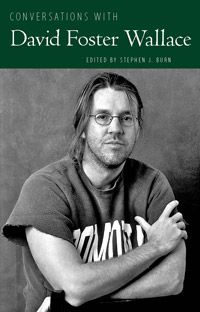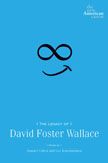Career
He Left a Huge Post-Ironic Hole
David Foster Wallace's life and work continue to seduce us.
Posted August 22, 2012

Recent books have allowed ardent readers extra peeks into the mind of David Foster Wallace, the writer who killed himself in 2008.
Wallace wrote both fiction and nonfiction, usually brilliantly. Critics and academics continue to argue whether his work was ironic, post-ironic, or meta-ironic. To the common reader, it hardly matters what you call it.
He was very funny, and his famous plethora of footnotes seem to me an accurate expression of how many people think. He could be exhausting to read at times, but then, thinking that way is exhausting. Wallace strove to do so much, and for those who delight in his writing, he stopped too soon.
Conversations with David Foster Wallace, edited by Stephen J. Burn (University press of Mississippi), collects 22 interviews from 1987 to 2008. Wallace, very self-conscious (in and out of his writing) didn't like to be interviewed. He wrote this in a letter to Don DeLillo:
If you try to be unpretentious and candid, a reporter comments on the unpretentious, candid persona you've adopted for the interview. It ends up being lonely and wildly depressing.
The interviews collected in this volume are fascinating, even if they make the reader self-conscious too, witnessing the interviewer's efforts to get at the "real" David Foster Wallace. When you can't get enough Wallace—no more living Wallace—this is what is left. I find it enlightening and moving.

Another recent book analyzes the deep appeal of David Foster Wallace's writing with a collection of academic essays (though none are so academic as to lose the man himself). The Legacy of David Foster Wallace, edited by Samuel Cohen and Lee Konstantinou (University of Iowa Press) who also wrote the Introduction, contains essays by contributors such as Paul Giles, Don DeLillo, George Saunders, Jonathan Franzen, Rick Moody, and Dave Eggars. The volume features several essays related to Wallace's challenging major early (1996) novel Infinite Jest.
A brief excerpt from the essay by Paul Giles:
The unusual power of Wallace's writing, then, derived from his capacity to make it personal and impersonal, emotionally affective and ruthlessly abstract, both at once.
And here is a tiny bit of Wallace himself, from David Lipsky's interview with him:
The job that we're here to do is to learn how to live in a way that we're not terrified all the time. ... The face I'd put on the terror is the dawning realization that nothing's enough, you know? That no pleasure is enough, that no achievement is enough. That there's a kind of queer dissatisfaction or emptiness at the core of the self that is unassuageable by outside stuff.
If you're a DFW fan, you might want to see my previous posts about him:
- Can You Procrastinate Yourself to Death?
Copyright (c) 2012 by Susan K .Perry


